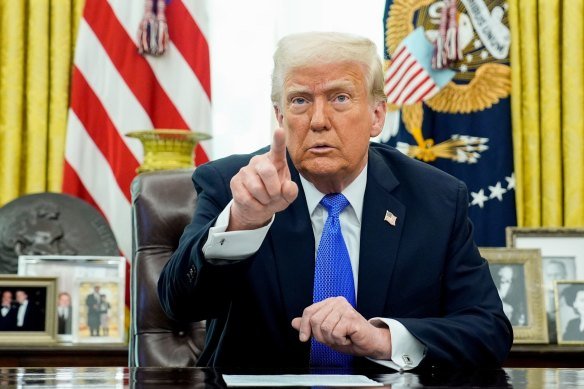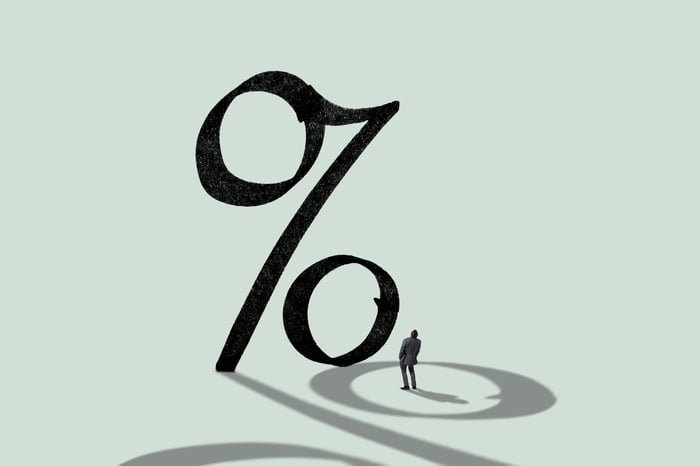
By Ali Velshi
This is an adapted excerpt from the June 8 episode of “Velshi.”
On Monday, the Trump administration’s travel ban on nationals from 12 countries — almost all in Africa and Asia — went into effect.
Last week, Donald Trump announced full bans would be issued on Afghanistan, Chad, the Republic of Congo, Equatorial Guinea, Eritrea, Haiti, Iran, Libya, Myanmar, Somalia, Sudan and Yemen. He also announced partial restrictions on nationals from Burundi, Cuba, Laos, Sierra Leone, Togo, Turkmenistan and Venezuela.
The White House’s official argument is that the countries on this list, as determined by the secretary of state, do not adequately provide information to the U.S. for screening and vetting visa applicants.
That 2017 ban typified Trump’s first term. It was met with outrage and immediate protest.
In a prerecorded video address discussing the order, Trump cited the firebombing attack in Boulder, Colorado, at an event honoring hostages taken by Hamas in the Oct. 7, 2023, attack. An Egyptian national has been charged in the firebombing, but Egypt is not included on the list of countries under the new restrictions.
Mark Hetfield, president of a refugee resettlement agency, told The Washington Post there was a commonality between the countries included in the order. “They’re travel bans from countries that obviously don’t respect human rights and don’t respect the rule of law and have foreign relations issues with the United States,” Hetfield said. “But those are exactly the kinds of countries that produce the refugees and, in particular, produce refugees that the United States would have an interest in resettling.”
You may recall that in Trump’s first term, he restricted travel from a group of mostly majority-Muslim countries: Iran, Libya, North Korea, Somalia, Syria, Venezuela and Yemen. That 2017 ban typified Trump’s first term. It was met with outrage and immediate protest, with activists, immigration lawyers and citizens alike camping out in airports to decry the order.
It also typified Trump’s first term in its sloppiness. The order was immediately rejected by a court, rewritten, rejected again, and rewritten a third time. When it reached the Supreme Court in 2018, the Court ruled 5 to 4 that the president did have authority under the Immigration and Nationality Act to restrict the entry of people from countries that do not share adequate vetting information or could otherwise pose a national security risk.
With this new ban, the Trump administration appears to have learned from that first-term experience and adapted its approach. The new order references the very same clause of the Immigration and Nationality Act, which reads:
Whenever the President finds that the entry of any aliens or of any class of aliens into the United States would be detrimental to the interests of the United States, he may … suspend the entry of all aliens or any class of aliens as immigrants or nonimmigrants, or impose on the entry of aliens any restrictions he may deem to be appropriate.’
Back in 2018, Chief Justice John Roberts said this language “exudes deference to the President in every clause.”
Perhaps Trump’s first travel ban faded from public consciousness, but it was the law of the land until it was repealed by his successor, Joe Biden, in 2021. And the legal world’s perception is that this latest ban is built to survive a legal battle as well.
Trump made the announcement Wednesday night, and by Thursday afternoon, he and Musk were in their spat, which took up all the oxygen in the news cycle.
Trump’s second term has been replete with lessons he learned from the first: He spent four years out of office, stewing on plans to wield the power he lost in 2020, and he came back into office armed with a 900-page playbook to bend the government to his whims and many executive orders already written, ready for him to sign.
In the public’s reaction to Trump’s second ban, we see another difference: It wasn’t met with the same outcry as his first. Although Americans are protesting the president’s policies at Immigration and Customs Enforcement facilities across the country, no spontaneous protests against the travel bans have broken out in airports like last time (at least not so far).
It’s apparent even in the media: Trump made the announcement Wednesday night, and by Thursday afternoon, he and Musk were in their spat, which took up all the oxygen in the news cycle. As Adam Serwer argued in a recent piece for The Atlantic, this story is evidence that Americans have grown numb.
“The number of disastrous things the administration is doing makes prioritizing difficult for its opponents,” Serwer wrote. “But there is also the reality that Trumpism is a kind of authoritarian autoimmune disease, one that has been ravaging the American body politic for so long that there are fewer small-d democratic antibodies left to fight it off.”

Ali Velshi is the host of “Velshi,” which airs Saturdays and Sundays on MSNBC. He has been awarded the National Headliner Award for Business & Consumer Reporting for “How the Wheels Came Off,” a special on the near collapse of the American auto industry. His work on disabled workers and Chicago’s red-light camera scandal in 2016 earned him two News and Documentary Emmy Award nominations, adding to a nomination in 2010 for his terrorism coverage.
Armand Manoukian and Allison Detzel contributed.







